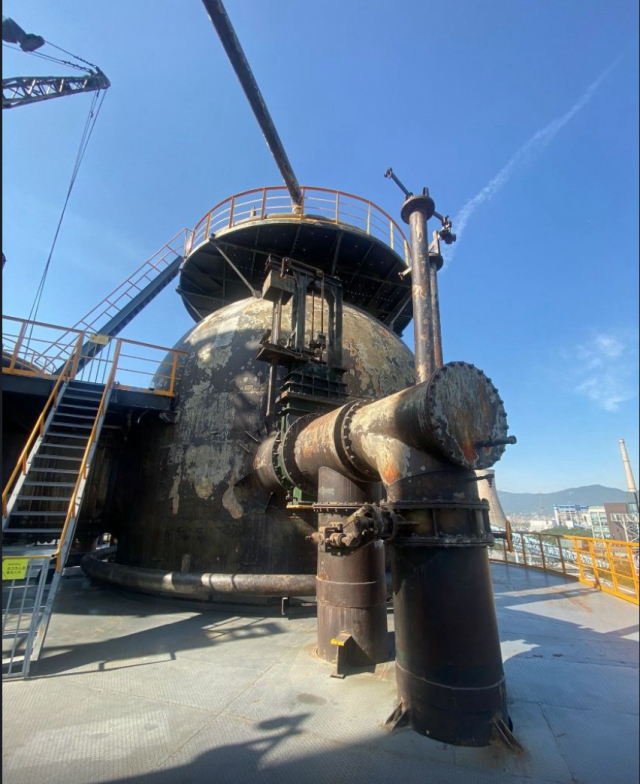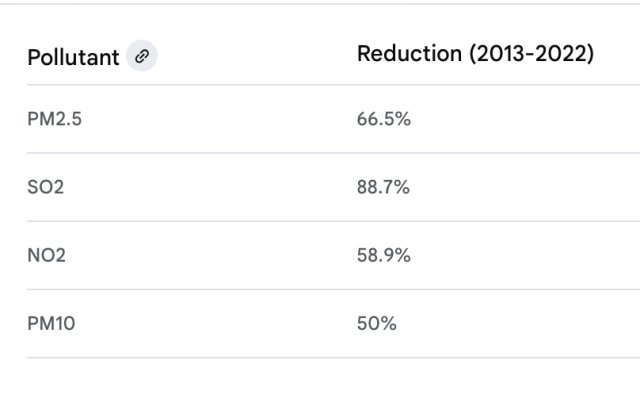
Remnants of Shougang Steel plant in Beijing which has been decommissioned; remaining steel production moved from the City and turned into an industrial Park where the air quality is visible much better now.
Beijing’s air quality has significantly improved since the 2008 Olympics, driven by government initiatives, with PM2.5 levels dropping by more than 50% and contributing to an increase in life expectancy. The Olympics spurred temporary measures and long-term policies like the Beijing Clean Air Action Plan (2013-2022), which involved relocating industries, increasing green energy, reducing traffic emissions, and strict environmental regulations, leading to sustained “Beijing Blue” skies.
During the 2008 Games, we had a host of temporary “Olympic Blue Skies” measures resulted in significantly lower air pollution levels, with the Air Pollution Index (API) 36% lower than the average of the preceding eight years.
After the temporary controls we had sustained progress, and most significantly between 2013 and 2020, Beijing’s PM2.5 levels dropped from 85 μg/m³ to 38 μg/m³, a decrease of over 50% along with other pollutants as listed below;

The Olympics acted as a catalyst for major government action and in particular the Beijing Clean Air Action Plan (2013-2022). This major program focused on:
Relocating, closing, or cleaning up polluting industries; increasing green energy generation; reducing emissions from traffic and extensive reforestation.
We also had stricter regulations as a revised Environmental Protection Law in 2015 introduced the most stringent regulations to date for preventing and controlling air pollution nationally and locally.
Also regional coordination, as we saw coordinated efforts across the Beijing-Tianjin-Hebei region contributed to lower PM2.5 levels between 2013 and 2017.
And on the infrastructure and energy front, China has worked to switch coal-fired boilers to gas and has significantly expanded its public transportation network, including subways and bus lines, to reduce traffic emissions.
Finally the reduction in air pollution has directly benefited the health of Beijing residents. Research by the EPIC has shown that this improvement is linked to an increase in life expectancy for Beijing residents.